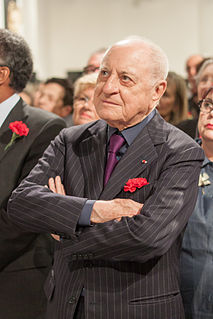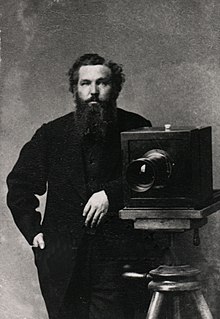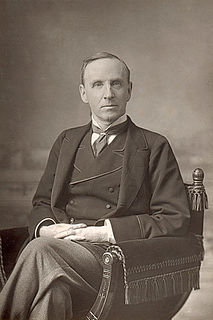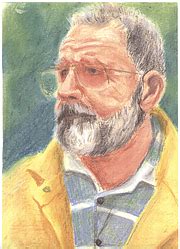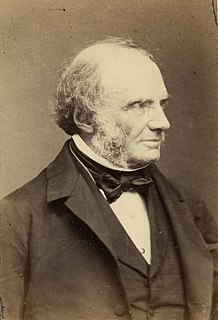Top 846 Zen Proverb Quotes & Sayings - Page 2
Explore popular Zen Proverb quotes.
Last updated on April 14, 2025.
Zen, on the other hand, is not so dogmatically sterile, though there are certainly traces and more than traces of this austerity. However, with Zen we have not only the void, but the fertile void. The ink lines in a sumi-e painting show this fertility of the void ever ready to brim over into existence.
To have Zen is to be in a state of pure sensation. It is to be freed from the grip of concepts, to see through them. This is not the same as rejecting conceptual thinking. Thoughts and words are in the world and are as natural as flowers. It is a mistake therefore to think that Zen is anti-intellectual.
Zen is really just a reminder to stay alive and to be awake. We tend to daydream all the time, speculating about the future and dwelling on the past. Zen practice is about appreciating your life in this moment. If you are truly aware of five minutes a day, then you are doing pretty well. We are beset by both the future and the past, and there is no reality apart from the here and now.
Hence when a person is in great pain, the cause of which he cannot remove, he sets his teeth firmly together, or bites some substance between them with great vehemence, as another mode of violent exertion to produce a temporary relief. Thus we have the proverb where no help can be has in pain, 'to grin and abide;' and the tortures of hell are said to be attended with 'gnashing of teeth.'Describing a suggestion of the origin of the grin in the present form of a proverb, 'to grin and bear it.'
The practice of Zen mind is beginner's mind. The innocence of the first inquiry—what am I?—is needed throughout Zen practice. The mind of the beginner is empty, free of the habits of the expert, ready to accept, to doubt, and open to all the possibilities. It is the kind of mind which can see things as they are, which step by step and in a flash can realize the original nature of everything.
A very enjoyable meditation on the curious thing called 'Zen' -not the Japanese religious tradition but rather the Western clich of Zen that is embraced in advertising, self-help books, and much more. . . . Yamada, who is both a scholar of Buddhism and a student of archery, offers refreshing insight into Western stereotypes of Japan and Japanese culture, and how these are received in Japan.
My ethics, my sense of morality, my work ethic, my sense of compassion for suffering humanity, all of that comes directly out of the practice of poetry, as does my Buddhist practice. Poetry is a very important element in the history of Buddhism in general and in Zen in particular. It was really Zen that motivated me to change the way I perceive the world.
Not thinking about anything is zen. Once you know this, walking, standing, sitting, or lying down, everything you do is zen. To know that the mind is empty is to see the buddha.... Using the mind to reality is delusion. Not using the mind to look for reality is awareness. Freeing oneself from words is liberation.
Zen enriches no one. There is no body to be found. The birds may come and circle for a while in the place where it is thought to be. But they soon go elsewhere. When they are gone, the "nothing," the "no-body" that was there, suddenly appears. That is Zen. It was there all the time but the scavengers missed it, because it was not their kind of prey.
Zen is to religion what a Japanese "rock garden" is to a garden. Zen knows no god, no afterlife, no good and no evil, as the rock-garden knows no flowers, herbs or shrubs. It has no doctrine or holy writ: its teaching is transmitted mainly in the form of parables as ambiguous as the pebbles in the rock-garden which symbolise now a mountain, now a fleeting tiger. When a disciple asks "What is Zen?", the master's traditional answer is "Three pounds of flax" or "A decaying noodle" or "A toilet stick" or a whack on the pupil's head.
you must be careful never to allow doubt to paralyze you. always take the decisions you need to take, even if you're not sure you're doing the right thing. You'll never go wrong if, when you make a decision, you keep in mind an old German proverb: 'The devil is in the detail.' Remember that proverb and you'll always be able to turn a wrong decision into a right one.
The thing about Zen is that it pushes contradictions to their ultimate limit where one has to choose between madness and innocence. And Zen. suggests that we may be driving toward one or the other on a cosmic scale. Driving toward them because, one way or the other, as madmen or innocents, we are already there. It might be good to open our eyes and see.
I would have thought that I would have become one of those parents - just because it's my nature to be such a perfectionist - that anything falling short, I would have seen as a failure. But something has happened to me over the past few years - it's not Zen, believe me, I'm not at all Zen - but I'm so appreciative of even the chaos.
I got interested in Zen when I was a teenage beatnik on the streets of San Francisco. And it was my interest in Zen, in part, that got me into the Marine Corps, because that was a ticket to Asia. So I spent a couple of years on Okinawa and began reading and thinking about how I wanted to go about conducting my life.
The difference between the Japanese and the American is summed up in their opposite reactions to the proverb (popular in both nations), "A rolling stone gathers no moss." Epidemiologist S. Leonard Syme observes that to the Japanese, moss is exquisite and valued; a stone is enhanced by moss; hence a person who keeps moving and changing never acquires the beauty and benefits of stability. To Americans, the proverb is an admonition to keep rolling, to keep from being covered with clinging attachments.
Regarding R. H. Blyth: Blyth's four volume Haiku became especially popular at this time [1950's] because his translations were based on the assumption that the haiku was the poetic expression of Zen. Not surprisingly, his books attracted the attention of the Beat school, most notably writers such as Allen Ginsberg, Gary Snyder and Jack Kerouac, all of whom had a prior interest in Zen.
The great achievement of Zen Buddhism, and all of its cultural expressions in painting or the tea ceremony or rock gardens, is a rejection of earlier Buddhist ideas which were dependent
upon narrative - all the mythological creatures that populate the Buddhist galaxy. Zen insisted on the real located in nature.
Look who's calling the cauldron black." "Kettle. It’s a kettle. Get your metaphors right." "That wasn’t a metaphor. It was a, you know..." He stared off into space, blinking. "One of those things that’s symbolic of another thing. But isn’t the same thing. Just like it." "You mean a metaphor?" "No! It’s like a story...like...a proverb! That’s it." "I’m pretty sure that wasn’t a proverb. Maybe it was an analogy." "I don’t think so.
Until today, it really pissed me off that I'd become this totally centered Zen Master and nobody had noticed. Still, I'm doing the little FAX thing. I write little HAIKU things and FAX them around to everyone. When I pass people in the hall at work, I get totally ZEN right in everyone's hostile little FACE.
The secret of this kind of climbing, is like Zen. Don't think. Just dance along. It's the easiest thing in the world, actually easier than walking on flat ground which is monotonous. The cute little problems present themselves at each step and yet you don't hesitate and you find yourself on some other boulder you picked out for no special reason at all, just like zen.~ Japhy


